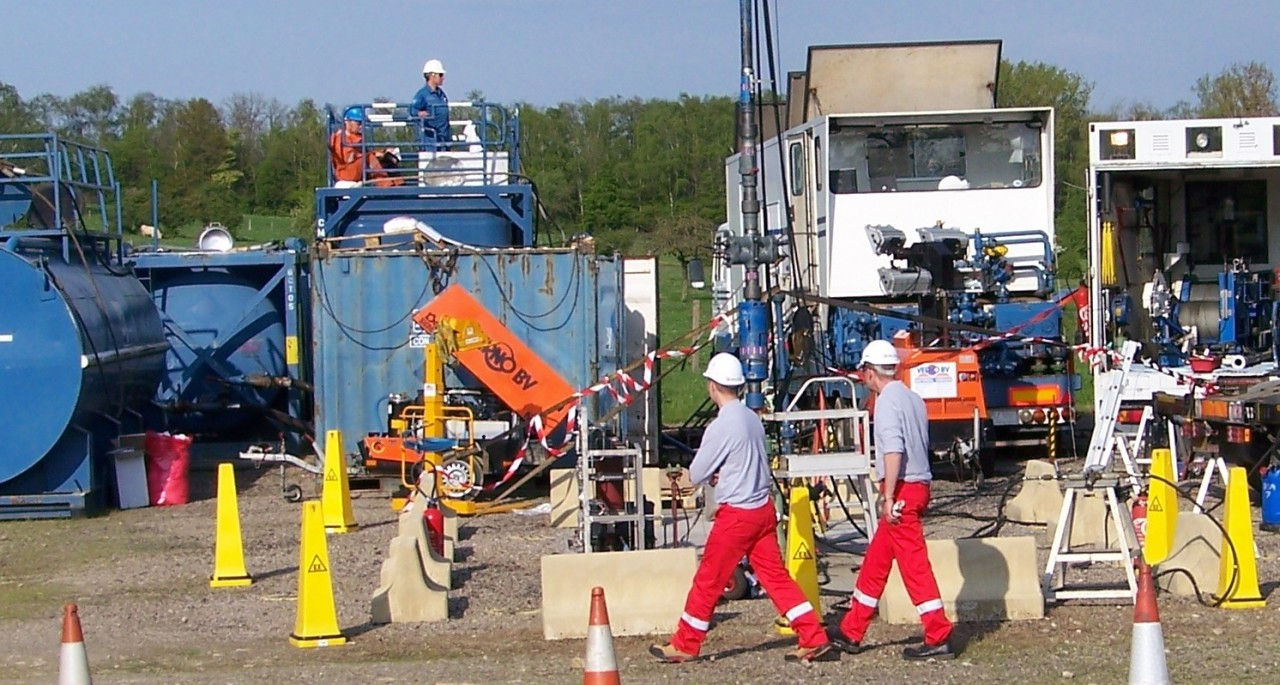
Technology
POWELTEC Technology has been built through a long experience in R&D programs. Poweltec treatment design combines near-wellbore simulations and laboratory study at reservoir conditions. Powletec proposes the product delivery and field assistance.
WSO / Conformance Control
On the contrary of the polymer flood application consisting in viscosifying injection water, the principle of Water Shut-Off (WSO - production well treatment by polymers) is to solve production problems caused by early water breakthrough or reservoir fractures linked to water drive. The main purpose of WSO is thus to reduce water influx from the water producing zones in order to stimulate production from oil-bearing zones.
In a similar way, Conformance Control (CC- injection well treatment by polymers) consists in injecting polymer/gel formulations to solve water channeling problems in the reservoir (high-permeability streaks, reservoir fractures, etc.). Therefore, the main purpose of CC is to improve reservoir conformance by a deep treatment of the thief zones from the injection well. CC is also called “Profile Control”…
In the case below, a production well is represented producing from two layers: one low-permeability oil layer and one high-permeability water layer.
Due to higher mobility and permeability, water production overtakes oil production from the low-permeability zone, resulting in high-water-cut production, poor sweep efficiency and poor economics. Well performance becomes strongly affected by water influx, and early shut-in may be expected with such a poor economics. WSO polymer treatment enables reducing water influx from the high-permeability layer with little impact on oil permeability. The net result is a reduction of the water cut of the well sometimes along with an increase in oil production rate, if the total fluid production of the well can be maintained.
Range of polymers for WSO & CC
A broad range of chemicals called Powelgel™ was created to perform WSO and CC in most of the formations including those high salinity and high temperature. Some of these products may be used in North Sea.
Powelgel™ products descriptions :
-
Size-controlled microgel species (adapted to large range of permeabilities)
-
Delayed gels environmentally-friendly (free of toxic cross linkers)
Powelgel™ products specificities:
-
Temperature stability: from 30°C up to 150°C,
-
Salinity up to 200 g/L TDS,
-
Withstanding the presence of H2S, Acids,
-
Excellent mechanical stability at high shear rate (up to 1,000,000 sec-1)
-
High efficiency in heterogeneous/Multi-layer formations
Proven track records have been obtained in a wide variety of field situations (i.e. gas wells, water-flooded wells, heavy-oil horizontal wells, offshore gravel-pack wells…). The design of Poweltec WSO and CC’ treatments combines near-wellbore reservoir simulations and laboratory core-flood experiments.
Payout of WSO treatments is often achieved within 1 month. Plots of Cumulative oil vs. Cumulative water production enables a good evaluation of additional oil produced after the treatment.
Sand Control
An original polymer technology is proposed for the consolidation of poorly cemented sandstone formations. This technology is based on the adsorption of an "environmentally friendly" water-based polymeric film on pore walls, which can efficiently prevent the erosion of the cement of the rock under high flow rates. The treatment can be bullheaded into the whole open interval of the well, without specific tools for placement. The risk of well impairment is minimized by the use of RPM product. Remarkable results have been recently obtained in the treatment of gas wells and underground gas storage wells.
Geothermal Technologies
Geothermal technologies are part of the portfolio of renewable energies. Deep geothermal applications (depth > 500 m) using producer-injector doublets were developed since several decades to generate heat, cold or electricity. Geothermal developments made in sandstone reservoirs can face severe injectivity losses due to fine migration, which compromise the deliverability and the sustainability of these doublets. Actually, the fine particles produced at the production well are suspected to be one of the main origins of the observed injectivity loss. Current remediation techniques consist in reducing the cut-off size of the filters, and/or cleaning the injector on regular basis through backflow production periods at high flow rates. Although these approaches usually provide positive results, they do not guarantee a complete restoration of the injectivity of the well and do not induce long-term effects.
Powelsand treatment consists in injecting a water-soluble polymer which coats the surface of the rock by a thin gel-like adsorbed layer. The polymer film protects the rock from erosion and fine particles movements. The technology has been successfully applied in oil and gas wells and in gas storage wells, and is robust enough to withstand high flow rates in geothermal wells.

EOR
Poweltec can provide a full Polymer Flood design package from feasibility studies to design of large field pilots. Poweltec services include:
-
Fast-track reservoir modeling
-
Laboratory bulk tests
-
Coreflood studies
-
Complete oil and brine analysis
-
Surface facility design
-
Field assistance
-
Training of workforce

